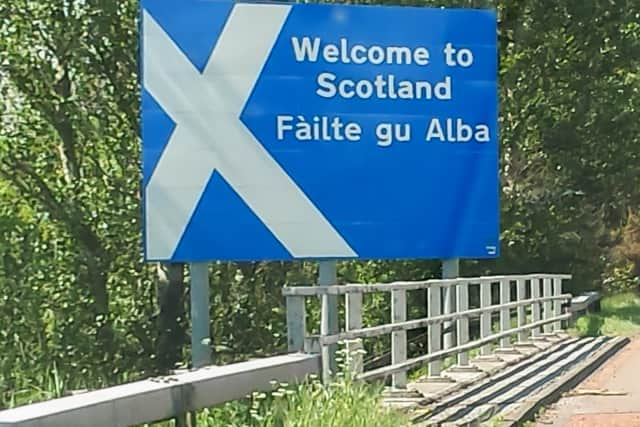More Gaelic to be used at Scottish Government under plan to save 'fragile' language
The Scottish Government wants to “mainstream” Gaelic among its staff and the public, with hopes the language will be used “more often, by more people and in a wider range of situations”.
Under proposals, every directorate at the government will be involved in increasing the use of Gaelic in the organisation.
Advertisement
Hide AdAdvertisement
Hide AdLatest official figures showed that 1.7 per cent of the population of Scotland – 87,056 people – could speak, write or understand Gaelic at the 2011 census. This was down by around 4,500 people on the 2001 figure.


The draft Gaelic Language Plan for 2021-26 has now been published as the government seeks “faster rates of progress” for the language.
Under proposals, any new Scottish Government logo will include Gaelic, with key signage to display both languages in time.
The government wants to “grow” the use of Gaelic when interacting with the public, with plans already in place to hire more Gaelic-speaking staff to deal with inquiries.
The draft plan also looks to “regularly explore and promote” opportunities to hold public meetings bilingually or in Gaelic.
An audit of Gaelic skills among staff will be held next year.
The draft plan said Gaelic was an integral part of Scotland’s "heritage, national identity and current cultural life”.
"However, we are aware the position of Gaelic remains fragile,” the plan added.
Advertisement
Hide AdAdvertisement
Hide AdLaunching the consultation, education secretary Shirley-Anne Somerville said: "The Gaelic language is a vital part of Scotland's cultural identity and we are determined to continue to support the status and long-term future of Gaelic and maximise the opportunities to use, learn and promote the language.
"If Gaelic is to have a sustainable future, there needs to be a concerted effort on the part of government and partners to promote and enable the use of the language.
"The draft version of our Gaelic Language Plan aims to support this by building on the commitments in place since the publication of our first plan in 2010.
"We welcome all views and I look forward to considering all responses to our consultation."
Iain Caimbeul, research fellow at the Language Sciences Institute at the University of the Highlands and Islands (UHI), said he was unable to comment on the detail of the draft report, but questioned how the outcomes of such policies were measured.
“A key question in relation to all these Gaelic Language Plans of public bodies is how much of a difference are they really making in the use of Gaelic outwith institutional and school settings,” he said. “How many have been formally evaluated for value-for-money and language outcomes?”
Mr Caimbeul added: “One area for improvement is to increase the number of sessions in the Scottish Parliament that are held in Gaelic. This would show real commitment to the language and be a positive signal to the wider community”.
The Scottish Government has also pledged to create a recognised Gàidhealtachd – or Gaelic-speaking area – to raise levels of language competence and increase the provision of services in Gaelic to promote the use of language in everyday settings.
Advertisement
Hide AdAdvertisement
Hide AdLast year, research found Scotland’s Gaelic speaking communities would “die out” within ten years unless a radical new approach was found in the heartlands of the language.
Researchers from UHI found social use of Gaelic was at the “point of collapse”, with around 11,000 vernacular speakers found largely among the over-50s, with very low levels of the language now spoken in the home.
It is predicted the community use of Gaelic in the community will reach the “moribund stage” within ten years if existing trends continue, researchers found, with only isolated networks of elderly speakers left.
Researchers also found the policy to preserve and promote Gaelic had focused on schools, the media and academia and that it had failed to relate to those living in Gaelic speaking communities.
Scottish Conservative shadow education secretary Oliver Mundell said: “The Gaelic language continues to play an important part in many communities right across Scotland. It is welcome there is now a plan from SNP ministers to protect its use, but there is little time to waste.
“As many have warned for years, its very future is under threat. The Scottish Conservatives will carefully study this plan to ensure that it will guarantee a sustainable future going forward for the Gaelic language, well beyond this Parliamentary session.”
A message from the Editor:Thank you for reading this article. We're more reliant on your support than ever as the shift in consumer habits brought about by Coronavirus impacts our advertisers.
If you haven't already, please consider supporting our trusted, fact-checked journalism by taking out a digital subscription.
Comments
Want to join the conversation? Please or to comment on this article.
